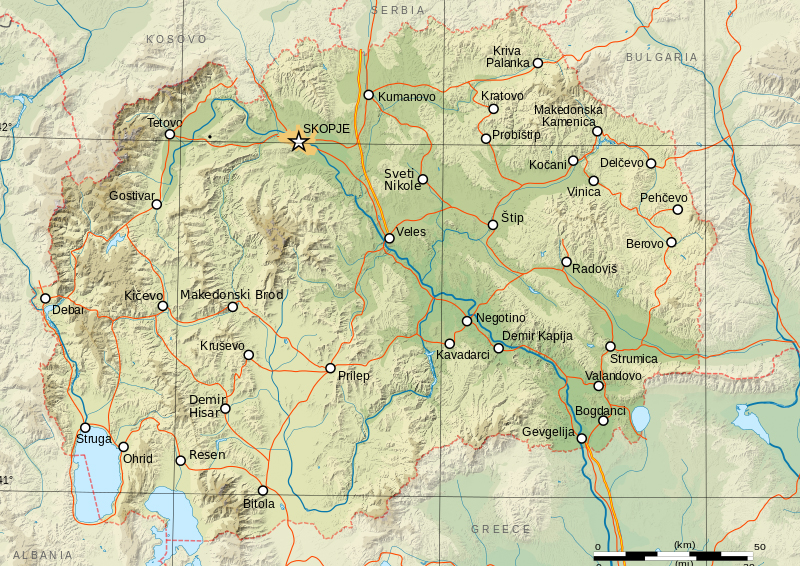When I got to the United States, the predominate place racism and diversity held in American social discussion surprised me. My experiences overseas make me see America as a place with good, strong legal regulations that attempt to enforce fairness. Americans look down on anyone who expresses dislike for someone because of their race. They will stand for a lot, but not that.
ACCEPTANCE OF RACIAL TENSION
I grew up as a minority myself, an American in Macedonia, in the heart of the explosive Balkan region of Eastern Europe. It is full of hidden churches and the cultural remains of the Byzantine, Ottoman, and Communist eras — a tangled history of oppression in a small surface area.
In Macedonia, no laws exist which make Macedonians hire Albanians, or vice versa. Albanians fly their flag in their neighborhoods, where Muslim minarets spiral high. Macedonians resent what feels like an attack on their orthodox, Slavic identity. Much of the Roma population lives on the dump, or subsists on cardboard they find in dumps, load it onto horse carts and take it to be recycled. Roma children rarely get enough schooling to learn Macedonian, much less go to college, and they receive no legal help. The Roma people are known by the derogatory term, “cigani”, roughly translating to “gypsies.”
No one even talks about integrating these communities and no one wants to. People largely accept and ignore this situation, but when faced with the more immediate problem of a 40 percent unemployment rate this seems hardly surprising.
A LOVE OF DIVERSITY
When people talk about race here, I cannot help thinking, entire countries do nothing about racism. They accept deep-set hatred, within and across borders, stemming from a couple millennia of war and the re-drawing of borders until no one knows who is right anymore. But in America, I mostly see a love of diversity.
I do not want to cry “first-world problems.” I want to offer a perspective that could inform the conversation.
America has the opportunity to come a long way with the issue of racial equality. Laws have been enacted which protect people from the outpouring of hate-fueled and derogatory feelings. Our court systems do not generally bend to the richest, most influential side — another appreciation one develops while living in the Balkans. The strong negative social sense which condemns racism restrains its expression to some degree.
The rest of the problem seems to reside inside individual, sinful people. Their nation, or any kind of system, cannot do much about that part. That seems true about all problems of sin. We regulate stealing, but we can not regulate coveting. Laws and regulations have been placed on pornography and prostitution — but can anyone but God change the lust people always have and will always struggle with? We can refine the system, but we cannot make it do the work of heart-change.
Maybe this article will give you a moment of thankfulness for how far this society has come. If it does, pray for helpful regulation in other places and give whatever personal sin or pain you have to the God who has a truly global perspective.







